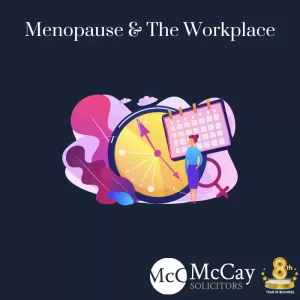
UK Government Rejects Calls To Make Menopause A Protected Characteristic
The Government has published its response to the Women and Equalities Committee’s Menopause and the workplace report, rejecting several recommendations including the suggestion to make menopause a protected characteristic.
The news has been met with disappointment by the Women and Equalities Committee as well as many organisations that support women in the workplace. Writing to the Government, the Chair of the Committee Caroline Nokes, voiced concern that the Government has “ignored the significant evidence base” for equality law reform and called on Westminster to review its position. Ms Nokes also set out the low cost but high impact opportunities provided by model workplace menopause policies and leave, evidently dismissed by Ministers. The Committee stated it was “extremely disappointing that the Menopause Taskforce has not met since prior to the summer recess, and that the industry roundtable on HRT supplies has been delayed a number of times.”
Employers are likely to be relieved that menopause has not been made a protected characteristic. Despite the Government’s decision, however, there is still a desire for employers to create menopause policies and support procedures. Claire McCartney, senior resourcing adviser at the CIPD told HR Magazine that a universally inclusive workplace culture with a day-one right to flexible working could improve the outcomes of women dealing with peri-menopause and menopause symptoms:
“For organisations who wish to implement their own menopause policies, or create a menopause-friendly workplace, they should start by creating a culture that allows employees to talk about the menopause.”
